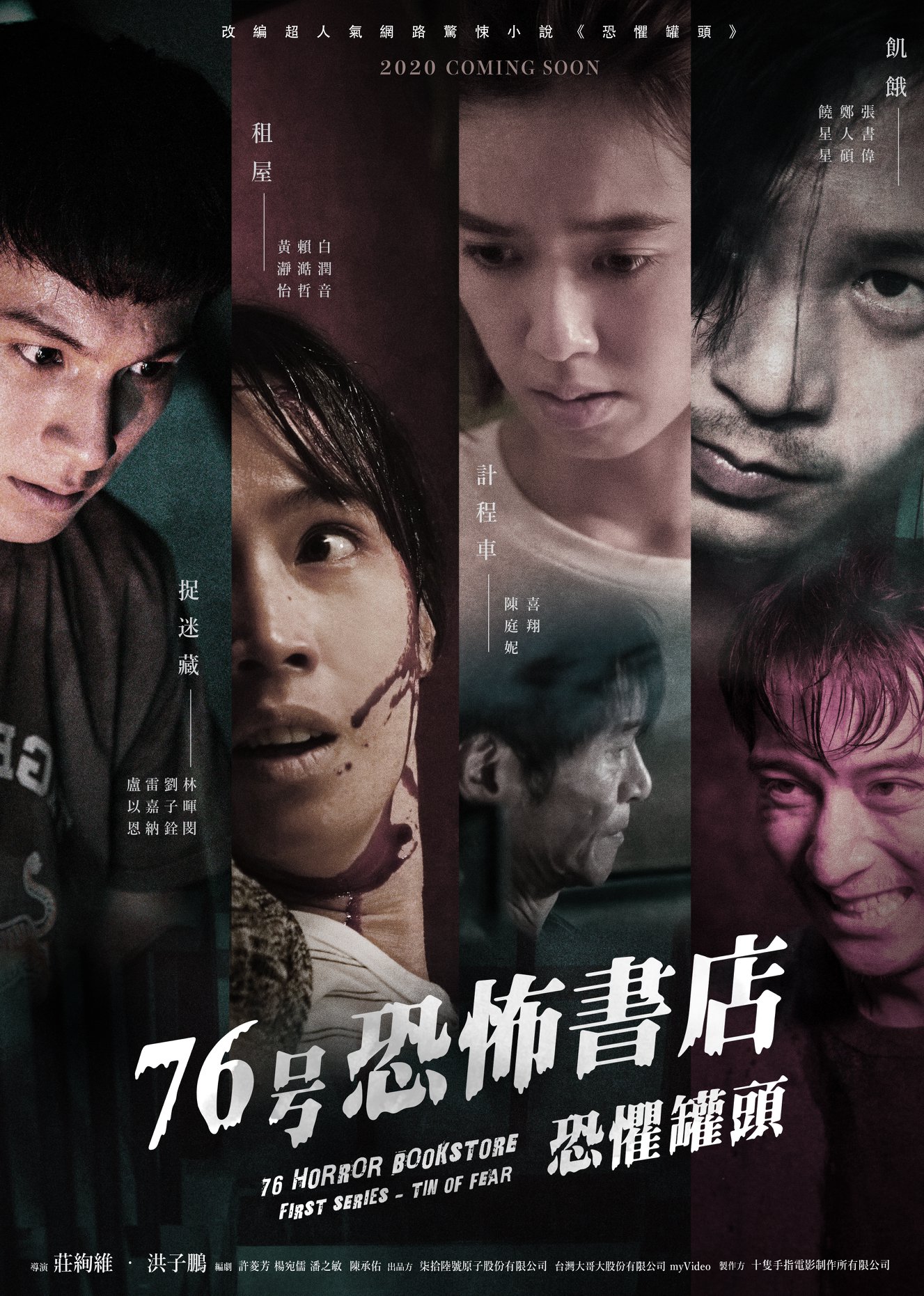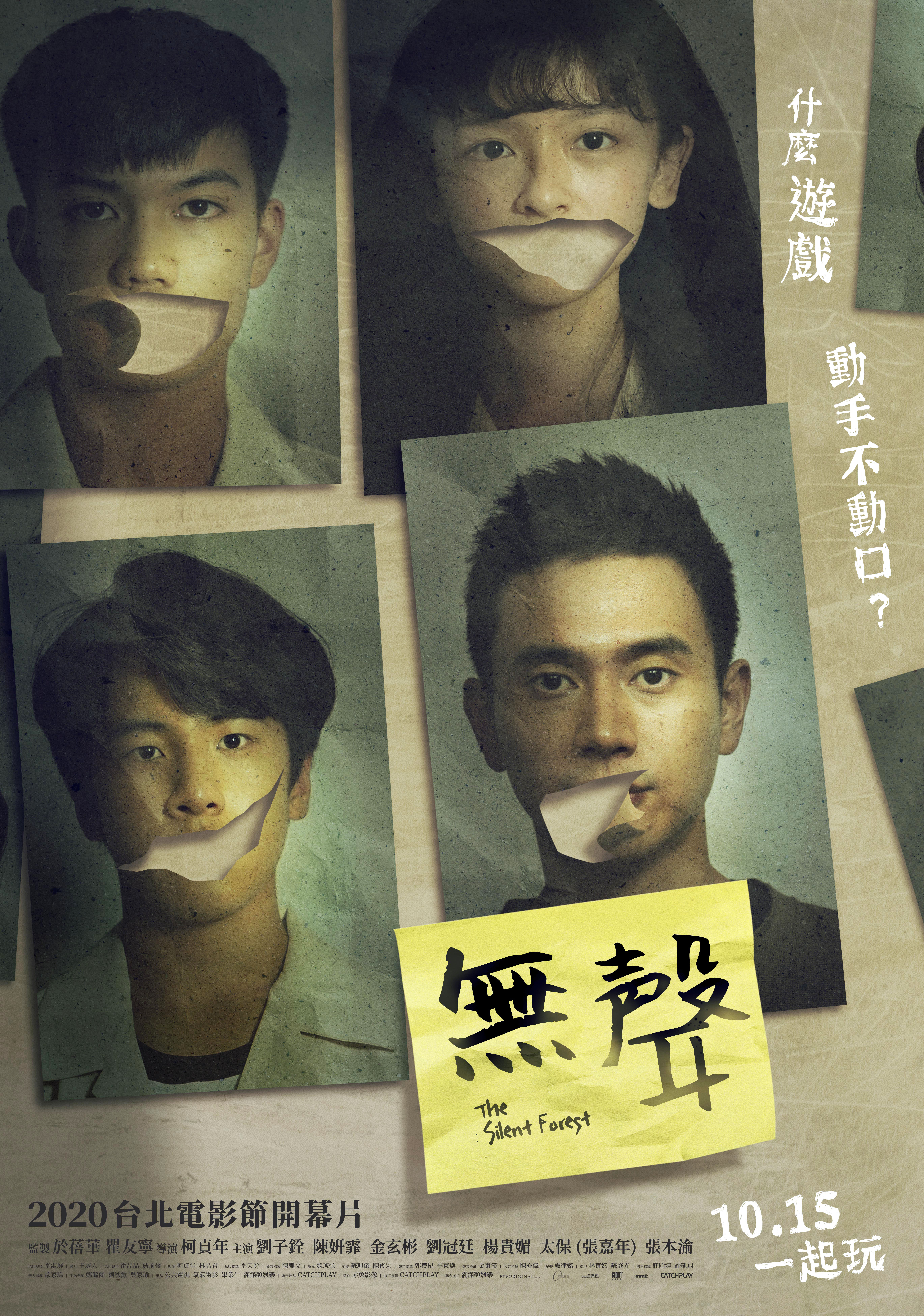The first in a potential franchise, David Chuang & Hung Tzu-peng’s chilling anthology 76 Horror Bookstore: Tin of Fear (76号恐怖書店之恐懼罐頭, 76-Hào Kǒngbù Shūdiàn zhī Kǒngjù Guàntou) adapts four short stories from the online novel series of the same name. Somewhat interconnected and featuring some of the same cast, the four episodes each present a different kind of horror but all featuring a rather grisly spin from the secrets contained in the grim apartment building of the first instalment to the heartbreaking familial drama of the last as a collection of contemporary lost souls attempt to make sense of life, death, and that which exists somewhere in between.
Titled “Rent”, the first chapter sees single mother Miss Ho (Esther Huang) leave her young son behind to travel to Taipei hoping to earn money through sex work in order to buy a house in which they can live together. Unfortunately, however, her city existence is even grimmer than expected, inhabiting a rundown apartment block overseen by an extremely creepy landlord (Lai Hao-Zhe) who informs her that the previous tenant, whose belongings are still in the room, abruptly disappeared without trace. “When your son grows up, he’ll be able to protect you” the landlord adds in rather sexist fashion finally getting round to fixing the lock on her door while singing unsettling nursery rhymes about slow rats getting eaten alive. Gradually Miss Ho becomes aware that the building is home to a dark secret connected with the sad fate of one particular family who apparently attempted to resist the urban renewal programme but ironically finds that her own victory lies in a sense with complicity.
Meanwhile, in Hunger a convict (Joe Chang Shu-Wei) wakes up on the outside after a traumatic episode only to discover that in this version of reality food has been declared illegal. The clerk at a convenience store (Troy Liu Tzu-Chuan) reacts to his polite request for sustenance with shear horror as if he’d just asked him where he might be able to find the weapons grade plutonium or high grade explosives. A strangely dressed man hanging round outside explains that there’s no more food for another 76 days, but he can supply him with some tins for a small fee. Gesturing at the sign inside the store which is currently counting down to a ghost festival might have clued the man in on where he might be if only he had his thinking cap on, but sure enough he finds himself trapped in a purgatorial hellscape and eventually faced with an ironic confrontation as he resolutely fails to take the opportunity to overcome his baser instincts.
Shifting into teen supernatural romance, Hide and Seek takes a less grisly though no less cruel turn as a bunch of kids head out on an adventure to celebrate the 18th birthday of Xiaoqi (Eric Lin Hui-Ming). Best friend Shaohua (Troy Liu Tzu-Chuan) has organised a camping trip to a supposedly haunted former dormitory yet the conflict here is of a more ordinary kind in that both the boys had unwittingly intended to declare their love to the same girl. Nevertheless, as the haunted house adventure proceeds Xiaoqi begins to to wonder who is haunting who, unwittingly forced into a delayed confession of his repressed emotion.
Something similar befalls Hsin-chieh (Annie Ting-ni), the 30-something heroine of final instalment Taxi who has recently discovered she is pregnant and is subsequently consumed with maternal anxiety that reflects the loss of each of her parents in very different circumstances along with a possible sacrifice of independence and individual identity. Nagged by the aunt who raised her and seemingly cajoled by her perfectly pleasant, vaguely supportive boyfriend Ah-Shu (Wang Wei), Hsin-chieh leans towards an abortion, ending the relationship and getting a flat of her own but soon finds herself haunted by a creepy little girl and a host of other strange goings on until finally forced to face the legacy of abandonment in order to make peace with the traumatic past, ending a painful cycle of guilt and retribution in a bloody confluence of death and rebirth. Filled with surreal and nightmarish imagery, Taxi is at heart all about forgiveness and moving forward, a fitting end these four gloomy tales of supernatural harassment and guilty consciences finding at least a ray of hope in new life unburdened by fear or shame.
No. 76 Horror Bookstore: Tin of Fear streams in the US March 27 – 31 as part of the 12th season of Asian Pop-Up Cinema.
Original trailer (English / Traditional Chinese subtitles)



